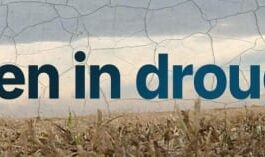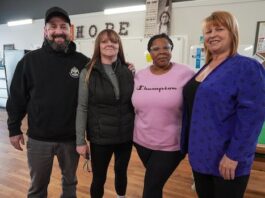
When Kanye West launched his antisemitic Twitter rant back in October — threatening to go “death con 3” on Jews — comedian Sarah Silverman, who is Jewish, lamented over what she perceived as the lack of reaction from the non-Jewish community.
“Kanye threatened the Jews yesterday on twitter and it’s not even trending. Why do mostly only Jews speak up against Jewish hate? The silence is so loud,” she tweeted.
Kanye threatened the Jews yesterday on twitter and it’s not even trending. Why do mostly only Jews speak up against Jewish hate? The silence is so loud
—@SarahKSilverman
Just weeks earlier, Michael Levitt, a former Toronto Liberal MP who is now head of the Friends of Simon Wiesenthal Centre for Holocaust Studies, had expressed similar frustration over the muted reaction from his former colleagues about Laith Marouf. Marouf had been hired by the federal government to consult on anti-racism initiatives, only to have been discovered to have made antisemitic remarks on social media.
“I’m utterly disheartened,” Levitt tweeted. “Taking a stand against antisemitism should be a given & yet so few of my former Liberal colleagues have done so. This truly hurts.”
Looking back on events over the last week w/ regards to Marouf affair, I’m utterly disheartened. Taking a stand against antisemitism should be a given & yet so few of my former Liberal colleagues have done so. This truly hurts. Jewish MPs shouldn’t be left to call this out alone.
—@LevittMichael
Silverman and Levitt are among a number of Jewish community members who say the non-Jewish community has been too silent regarding antisemitic incidents. And that tepid response, particularly from progressive groups, some suggest, comes from a misguided view that Jews are part of the white privilege and should not be seen as oppressed.
“We look around and we see a society that rightfully calls out hate and discrimination when we see it for so many other groups,” Levitt wrote.
‘Shrugged off’
When he wrote that, Levitt told CBC News, he felt the Marouf incident was “representative of what we’re seeing in so many other places where this absolutely unequivocal, vile racism somehow was being kind of a shrugged off to a corner because it was targeting Jews.”
The anti-Jewish outburst from West, now known as Ye, and the meeting between him, white nationalist Nick Fuentes and former U.S. president Donald Trump has put antisemitism in the spotlight. But according to the U.S. based Anti-Defamation League (ADL), which has been tracking such incidents for more than 40 years, reported acts of antisemitism are steadily increasing.

In its 2021 audit, the organization reported 2,717 antisemitic incidents throughout the U.S. — a 34 per cent increase from 2020 and the highest number since it started tracking such incidents in 1979.
Meanwhile in Canada, the annual audit by the Jewish advocacy group B’nai Brith found record levels of antisemitism in Canada last year, with 2,799 anti-Jewish hate crimes, including beatings, vandalism of synagogues and swastikas in schools.
Yet Levitt and others say there seems to be an acceptance or allowance for these crimes, in part, because of how Jews are viewed in society.
“I think to a certain extent it’s because there’s this myth of Jewish power,” Levitt said, whether it’s wealth or political power or something else.
Jews are therefore seen as outside the circle of racism and discrimination that people will take a stand against, he says.
While there’s been a surge of antisemitism from both the politically extreme left and right, Levitt says he believes this particular refusal to take a stand against antisemitic acts “really has been dominant on the left.”
Even some self-described Jewish progressives are calling out other progressive organizations to take a stronger stand against antisemitism.
‘Doesn’t actually make sense’
Progressives have “shower[ed] other communities with much-needed solidarity in some of the most challenging political moments in recent history,” wrote Neta Meltzer, the national vice president of community engagement with Zioness Movement, in a blog for the Times of Israel.
But then, she continued, “I was expected to understand why my community, to borrow … from David Baddiel, ‘didn’t count.’
“But I don’t understand, because it doesn’t actually make sense.”
Baddiel is a British-Jewish comedian who has just released a documentary based on his 2021 book Jews Don’t Count. Both criticize progressive anti-racists for ignoring antisemitism and refusing to view Jews as an oppressed group.
“With the intensification of identity politics and concerns about minorities, and offence and inclusion and representation, all that stuff seemed not to be tracking for Jews,” Baddiel told the Jewish Telegraphic Agency in a recent interview.
“We seemed to not be part of that conversation. There seemed to be less offence about antisemitism and less inclusion and representation of Jews.”
A group of international lawmakers is demanding social media platforms be more transparent about how they fight antisemitism on their sites. Most companies are notoriously secretive about their business practices.
Meanwhile, Levitt’s organization has just called on the University of Toronto Termerity Faculty of Medicine (TFOM) to launch an independent inquiry following the publication of an article in the Canadian Medical Education Journal by associate professor Dr. Ayelet Kuper, who served as the faculty’s senior adviser on antisemitism between June 2021 and June 2022.
Kuper wrote about the antisemitism and discrimination she says she experienced as a faculty member but also claims that reports of antisemitism have been repeatedly dismissed.
She said, for example, that “white-passing Jewish TFOM students were being told by their peers that their pale skin means that they aren’t allowed to claim to have any experience of oppression.”
She claimed she overheard faculty colleagues complain about “those Jews who think their Holocaust means they know something about oppression.”
As well, Kuper wrote that she was repeatedly told by people well-versed in equity theory that “that my skin tone alone means I’m white, that I therefore have all the same privilege and ease in the world as any white person, and that I therefore can’t possibly understand oppression.”
Shimon Fogel, president and CEO of the Centre for Israel and Jewish Affairs, says part of the problem is also that people are really having a hard time understanding what hatred toward Jews looks like.
“It’s not quite the same as for other groups and it morphs into different manifestations over time,” he said.
He agrees that some have this inaccurate view that Jews are part of the white privilege cohort who couldn’t possibly be victims of hate because they are the ones responsible for systemic racism directed against the BIPOC community.
“Jews are denied the right to define their own lived experience because people say ‘Unlike BIPOC groups, you can’t possibly have been the victims of hate because of your position and status and place in society,'” he said.
Kanye West’s antisemitic outburst combined with a rise in hate crimes have forced the Jewish community to confront this wave of antisemitism with difficult conversations inside and outside the synagogue.
“That’s our huge challenge today. Antisemitism on the left or within progressive circles.”
Anthony Housefather, a Jewish Liberal MP, who is also the co-chair of the Interparliamentary Task Force to Combat Online Antisemitism, echoed that some believe Jews aren’t entitled to the same alliances as other victimized groups because they are seen as a well-off community.
But, he says, that doesn’t mean the Jewish community is wealthy, or all white; People don’t understand the community’s diversity, he says.
‘They’re still facing hate’
He said regardless of status, it’s clear from reports that there are more antisemitic incidents per capita, compared to hate crimes facing other groups.
“So regardless of the social socioeconomic status of that group, they’re still facing hate,” Housefather said.
He also says that this doesn’t mean that the vast majority of non-Jews are not allies in the fight against antisemitism.
“They just don’t experience it on a daily basis. And therefore, a lot of times when we’re expecting them to denounce, they’re not even aware of what they are supposed to denounce. They didn’t hear about the incident.”
“Jews are certainly more aware of such incidents, but “not everybody else is as conscious of it, and we need to inform them of what it is they need to denounce sometimes.”















